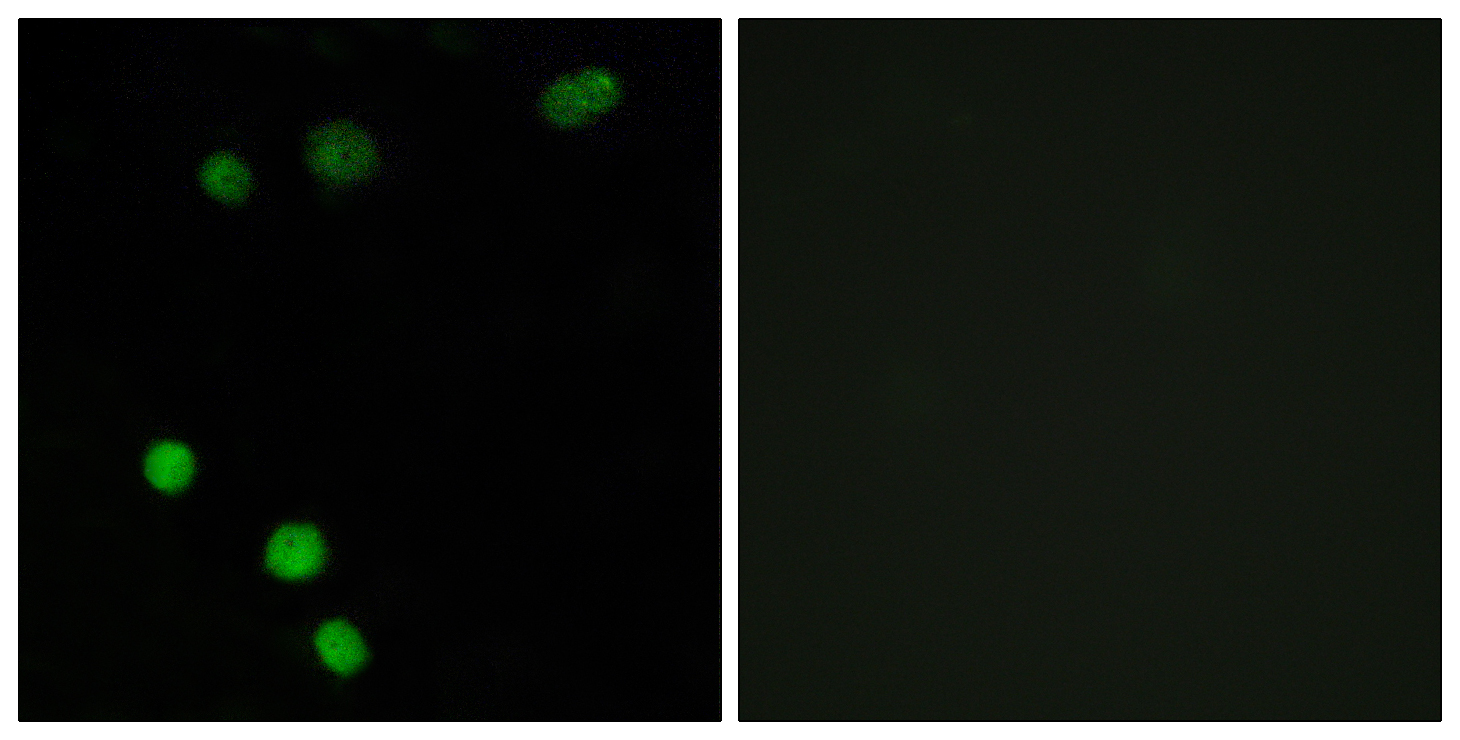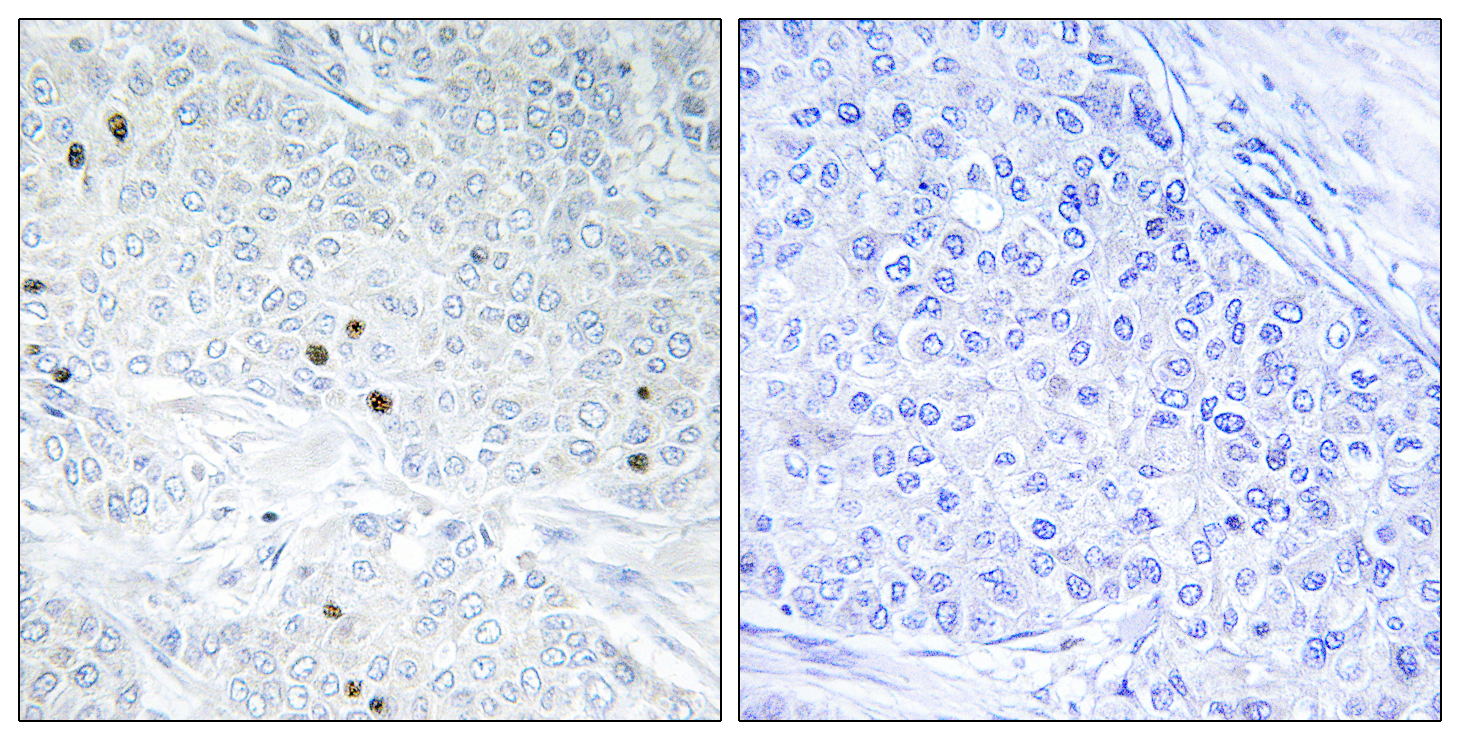TP53INP2 Polyclonal Antibody
- Catalog No.:YT4706
- Applications:WB;IHC;IF;ELISA
- Reactivity:Human;Mouse;Rat
- Target:
- TP53INP2
- Fields:
- >>Autophagy - animal
- Gene Name:
- TP53INP2
- Protein Name:
- Tumor protein p53-inducible nuclear protein 2
- Human Gene Id:
- 58476
- Human Swiss Prot No:
- Q8IXH6
- Mouse Gene Id:
- 68728
- Mouse Swiss Prot No:
- Q8CFU8
- Rat Swiss Prot No:
- Q8CHM3
- Immunogen:
- The antiserum was produced against synthesized peptide derived from human TP53INP2. AA range:1-50
- Specificity:
- TP53INP2 Polyclonal Antibody detects endogenous levels of TP53INP2 protein.
- Formulation:
- Liquid in PBS containing 50% glycerol, 0.5% BSA and 0.02% sodium azide.
- Source:
- Polyclonal, Rabbit,IgG
- Dilution:
- WB 1:500-2000 IHC 1:100 - 1:300. IF 1:200 - 1:1000. ELISA: 1:10000. Not yet tested in other applications.
- Purification:
- The antibody was affinity-purified from rabbit antiserum by affinity-chromatography using epitope-specific immunogen.
- Concentration:
- 1 mg/ml
- Storage Stability:
- -15°C to -25°C/1 year(Do not lower than -25°C)
- Other Name:
- TP53INP2;C20orf110;DOR;PINH;Tumor protein p53-inducible nuclear protein 2;Diabetes and obesity-regulated gene;p53-inducible protein U;PIG-U
- Molecular Weight(Da):
- 24kD
- Observed Band(KD):
- 17kD
- Background:
- tumor protein p53 inducible nuclear protein 2(TP53INP2) Homo sapiens The protein encoded by this gene promotes autophagy and is essential for proper autophagosome formation and processing. In addition, the encoded protein can enhance rDNA transcription by helping in the assembly of the POLR1/RNA polymerase I preinitiation complex. Finally, this protein serves as a transcriptional activator for some genes. [provided by RefSeq, Jul 2016],
- Subcellular Location:
- Cytoplasm, cytosol. Nucleus. Nucleus, PML body. Cytoplasmic vesicle, autophagosome. Shuttles between the nucleus and the cytoplasm, depending on cellular stress conditions, and re-localizes to autophagosomes on autophagy activation.
- Expression:
- Eye,Heart,
- June 19-2018
- WESTERN IMMUNOBLOTTING PROTOCOL
- June 19-2018
- IMMUNOHISTOCHEMISTRY-PARAFFIN PROTOCOL
- June 19-2018
- IMMUNOFLUORESCENCE PROTOCOL
- September 08-2020
- FLOW-CYTOMEYRT-PROTOCOL
- May 20-2022
- Cell-Based ELISA│解您多样本WB检测之困扰
- July 13-2018
- CELL-BASED-ELISA-PROTOCOL-FOR-ACETYL-PROTEIN
- July 13-2018
- CELL-BASED-ELISA-PROTOCOL-FOR-PHOSPHO-PROTEIN
- July 13-2018
- Antibody-FAQs
- Products Images

- Immunofluorescence analysis of MCF7 cells, using TP53INP2 Antibody. The picture on the right is blocked with the synthesized peptide.

- Immunohistochemistry analysis of paraffin-embedded human breast carcinoma tissue, using TP53INP2 Antibody. The picture on the right is blocked with the synthesized peptide.


